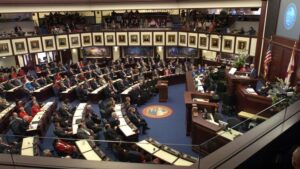BLOG
The Florida Marketable Record Title Act (MRTA) requires HOAs to reaffirm and renew their covenants and restrictions 30 years after they were originally recorded in the local county records. MRTA was created to extinguish claims to property which are at least 30 years old in an effort to stabilize property law by clearing old defects from the chains of title to real property, limiting the period of record searches, and clearly defining marketability by extinguishing old interests of record.
One of the unintended consequences of the Act is that the declarations of covenants, conditions and restrictions recorded by HOAs may be set to expire after 30 years of the date in which they were recorded. Keep in mind that for most HOAs, if the residents are no longer compelled to act in accordance with the community’s declaration, the results could be catastrophic for the associations’ administration and finances.
 The Florida legislature passed a law earlier this year to update the process for HOAs to renew and preserve their covenants and restrictions under MRTA in order to keep them in place after the 30-year term. Under the new law, which is now in effect, at any time during the 30-year period following the effective date of the title for the covenants and restrictions of a community association, the association may preserve and protect those covenants or restrictions from extinguishment by following more simplified filing procedures which include the following:
The Florida legislature passed a law earlier this year to update the process for HOAs to renew and preserve their covenants and restrictions under MRTA in order to keep them in place after the 30-year term. Under the new law, which is now in effect, at any time during the 30-year period following the effective date of the title for the covenants and restrictions of a community association, the association may preserve and protect those covenants or restrictions from extinguishment by following more simplified filing procedures which include the following:
- The filing of a written notice in accordance with Section 712.06 (similar to prior requirements); or
- The filing of a summary notice as required under Section 720.3032(2); or
- The filing of an amendment to a community covenant or restriction that is indexed under the legal name of the property owners’ association and references the recording information of the covenant or restriction to be preserved.
The summary notice must have the legal name, mailing address and physical address of the association; the names of the affected subdivision plats and condominiums or, if not applicable, the common name of the community; the name, address and telephone number for the current community association management company or community association manager, if any; indication as to whether the association desires to preserve the covenants or restrictions affecting the community or association from extinguishment under MRTA; a listing by name and recording information of those covenants or restrictions affecting the community which the association desires to be preserved from extinguishment; the legal description of the community affected by the covenants or restrictions, which may be satisfied by a reference to a recorded plat; and the signature of a duly authorized officer of the association, acknowledged in the same manner as deeds are acknowledged for record.
The signed notice must be recorded in the official records of the clerk of the circuit court or other recorder for the county, and a copy must be included as part of the next notice of meeting or other mailing sent to all association members.
The new law also stipulates that governing documents can be preserved by a recorded amendment under certain conditions, but amendments recorded prior to the effective date of the new statute may not qualify for preservation purposes.
The new amendments to the MRTA statutes will help many associations to streamline the process for the preservation of their governing documents. However, it is imperative for associations to consult with highly qualified and experienced legal counsel in order to ensure that they select and utilize the best possible method for their specific needs.

